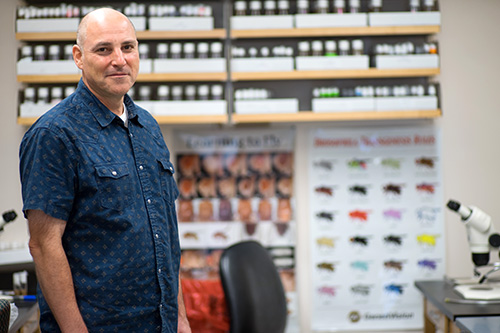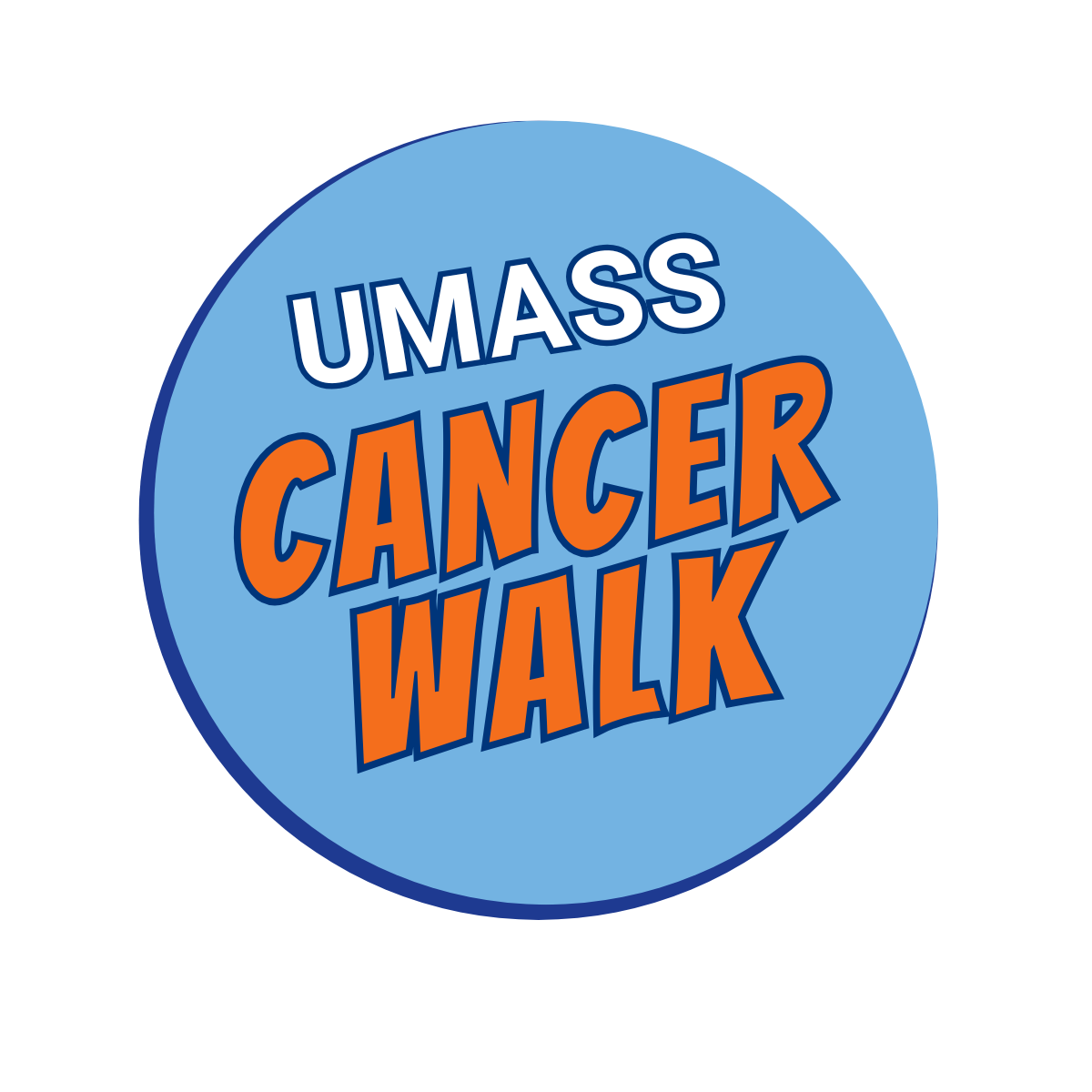Andreas Bergmann, PhD, shares why future of cancer research holds hope
Ahead of UMass Cancer Walk, researcher describes day-to-day work
 By Sophie Bergmann
By Sophie Bergmann
Andreas Bergmann, PhD, professor of molecular, cell and cancer biology, is one of the dedicated cancer researchers at the Medical School, working tirelessly to create a brighter future for those affected by the disease.
Originally from Germany, he earned a degree in biochemistry at the University of Tubingen in 1991, followed by a PhD in genetics at the Max Planck Institute in 1996.
After completing his doctorate, Dr. Bergmann spent four years as a postdoctoral fellow at the Massachusetts Institute of Technology. He then became an associate professor at the MD Anderson Cancer Center in Houston where his work earned recognition from many notable figures, including former President George H.W. Bush.
Since joining UMass Chan in 2011, Dr. Bergmann—who happens to be my father—continues to make important contributions in the lab. We sat down with him to find out how he ended up in this field, his major research accomplishments and the upcoming UMass Cancer Walk presented by Harr Toyota.
What compelled you to enter the field of cancer research?
As a geneticist with an interest in cancer, I was studying dying cells. And often when cells become abnormal, they die before they can become cancerous. So, cell death is a protection mechanism. The question is how do cancer cells escape this cell death mechanism. I discovered that the oncogene (a mutated gene that has the potential to cause cancer) RAS, can directly inhibit a cell death-inducing gene called HID. So, in other words oncogenes can directly interfere with the cell death mechanism which contributes to cancer. I published this work in 1998, in the journal Cell, and that was the entry point into cancer research for me.
What do you consider your most significant accomplishment in your career as a cancer researcher?
There are multiple important discoveries. One is, as I mentioned already, discovering the link between oncogenes and the inhibition of cell death. The second discovery is what we term “non-autonomous tumor suppressors”—tumor suppressors that don’t act within the tumor cell itself, but rather in neighboring cells. These suppressors can inadvertently provide a growth advantage to these adjacent cells, potentially leading to overgrowth and tumor formation. The third important discovery is the observation that dying cells can release signals to the neighboring surviving cells, which then can proliferate. Under extreme conditions, such as in cancer, this process can lead to the formation of tumors.
What do you still hope to accomplish in your career?
I do hope that some of our findings will eventually lead to important breakthroughs in the clinic. We hope that patients can be cured and helped by using research that we have compiled in the lab.
You have been at UMass Chan Medical School since 2011. What makes UMass Chan special?
The collaborative environment here is truly special. People communicate and talk with each other about findings, and more importantly, people work with each other, rather than working against each other, which unfortunately is prominent at many institutions. The friendly and collaborative environment is great at UMass Chan.
What is your favorite part of being a member of the Department of Molecular, Cell & Cancer Biology?
The department is really geared toward my exact interests, which as the name implies, are molecular, cell and cancer biology. I feel very fulfilled to be working in a department where I can do my desired research with no obstacles. I also have colleagues in my department who focus on different aspects of molecular, cancer and cell biology, which allows me to learn more and see what is going on outside of my own lab.
What is the biggest challenge?
The biggest challenge is patience. It is in the nature of science that you need to be very patient. Breakthroughs do not happen overnight or without challenging work, and it can be a very slow process. If you are not patient, then ultimately, you will not be able to succeed as a scientist.
What does the future of cancer research look like?
The future is bright! I think with all the new tools and technologies, and the innovation that is to come in the future, cancer research will result in more cures and treatment options for cancer that we have yet to imagine.
What advice would you offer to someone who wants to enter the field of cancer research?
It goes without saying that cancer research is a tough field to enter, and it would require lots of motivation and dedication. That being said, interested students should study hard, both in the classroom and the lab, and to put their best foot forward in helping us find ways to manage cancer.
What does your typical workday entail?
My mornings are filled with a lot of administrative tasks, but in the afternoon, I usually spend a lot of time in the lab, talking and working with my students and postdocs.
The 26th annual UMass Cancer Walk presented by Harr Toyota is scheduled for Sept. 29 at Polar Park. What significance does the event hold for your department and UMass Chan Medical School? Why is supporting cancer research important?
The cancer walk is particularly important for our department because ours is really the only department on campus that is completely dedicated to cancer research. The name truly does speak for itself, and the cancer walk is beneficial to us as it directly correlates with what we do. Supporting cancer research is critical for breakthroughs and allows us to continue our hard work that we hope will one day lead to a cure.
Visit the UMass Cancer Walk fundraising website to form a team or make a donation.
Sophie Bergmann was an intern in the Office of Advancement during summer 2024.

